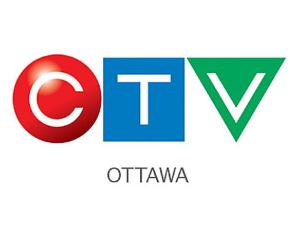I was convinced that local Guild leaders would vote to drop “paper” from our name at our next meeting. I was wrong. Delegates had strong and passionate feelings about “newspapers,” almost as if bracing against the tidal wave of change headed toward their industry and careers.
Twenty years later, it is past time. It is inevitable. We are media. We are content producers. Ink may be in our blood but it is no longer essential to our survival. That is why a resolution to change our name to “NewsGuild” will be offered at our sector conference in January. Based on reactions at regional conferences this fall, I expect it to pass.
We are rightfully proud to be long associated with newspapers and their investments in and commitments to quality journalism. Yes, hedge funds and other distant owners have hurt those investments and commitments, but it is still true that most news stories and investigative journalism originate with newspapers.
Most stories—but not all—as this year’s Heywood Broun awards illustrate. The top Broun award was shared by the online Center for Public Integrity and ABC News for a phenomenal joint investigation into a coal industry conspiracy to deprive sick miners of medical benefits.
ABC’s Brian Ross accepted the award saying how honored he and the producing team were to receive the award from The Newspaper Guild — even though “we don’t think of ourselves as newspaper people.”
But “In this day and age in journalism, we’re all really one,” he added, all of us sharing the latest technology “to tell important and big stories.”
Members of the Guild’s Executive Council were struck by Ross’ words. They may have never heard anyone say that our name limited journalists from identifying with the Guild.
Our goal isn’t to preserve print — as hard as it is for many baby boomers to imagine a day starting without coffee and the morning paper, emphasis on paper. Our mission is to preserve quality journalism and good jobs. On the best of days, this is a challenge. It is even more difficult if we are limited by our name.
Our new name will continue to be linked, proudly, with the Communications Workers of America. CWA is a good case study for us. Our parent union began as the National Federation of Telephone Workers but reorganized in 1947 as the Communications Workers. The name didn’t limit CWA to telephone and telecommunication work. Instead, a forward-thinking organization was born that 50 years later was a natural fit for newspaper and broadcast workers, interpreters and all kinds of customer service representatives.
As the fight for a reliable business model continues for news organizations, the upheaval and uncertainty for workers brings evermore urgency to our work. It’s critical that journalists and other media workers looking for help don’t come across “The Newspaper Guild” and be discouraged by our name. We believe “NewsGuild-CWA” will make a difference.
Unfortunately, journalists are far from the only newspaper workers being hurt as technology forever changes, or kills, jobs. A brazen misassumption in the early years of the internet was that the web would have little effect on newspaper advertising.
No one predicted Craigslist, let along Google, Facebook, and the myriad other high-tech means of separating revenue from content. Google is particularly infuriating to me, so far removed from its “Don’t Be Evil” beginnings. Today, it is a multi-billionaire parasite, using its wealth and power to gain more wealth and power while fighting against compensating the content creators they exploit.
“Tell us to stop searching your sites,” they tell news organizations that complain. I think it’s time for publishers to call their bluff. Some in the media have fantasized about a separate search engine or portal, where visitors would either pay for content up front or advertising revenue would be returned to the content creators. I’m not sure why no one is seriously talking about this yet. Like our name change, it’s past time.
The irony is that even Google needs us to succeed in our fight to save paid journalists and journalism. Well researched, accurately reported, reliable information is the common denominator, whether we’re talking about a search engine’s profits or our democracy’s survival.
NewsGuild-CWA plans to be part of those conversations for many years to come.

